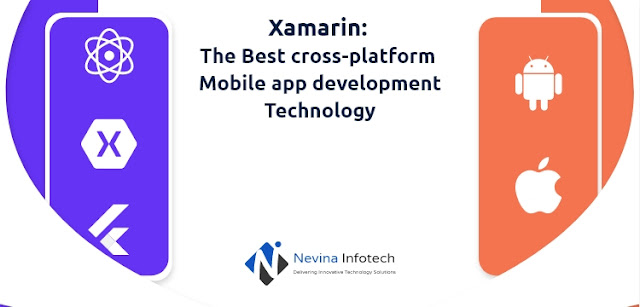Mobile applications have become a necessity for the business and us also in today’s time. A mobile app has made our lives easy, and it is also very beneficial for businesses. It has changed how we perform our daily routine and for business mobile apps have helped them increase customer trust and user experience.
The most challenging task is to decide which type of platform is best for mobile app development. For example, are you thinking that a native app is suitable for Android or iOS app development or a cross-platform app is good? According to me, a native app and a cross-platform both have their pros and cons.
Developing apps using Xamarin Cross-platform is the best option as Xamarin gives facility for faster app development. In addition, it is simple to use and takes less time to build. It also offers excellent flexibility and requires less maintenance.
Pros of using the Xamarin app
Given below are the excellent reasons for Xamarin mobile app development.
Single technology stack to code for all platforms
Xamarin mobile app development also doesn’t require switching between the development environments; you can build all your Xamarin app in Visual Studio or Visual Studio Code.
Performance close to native
Other than traditional hybrid solutions based on web technologies, a cross-platform app built using Xamarin can be classed as Native. Xamarin is developing and updating to match its level entirely with the native development.
The visual Studio also enables a complete solution for developing, testing, and tracking the app performance. It also gives you access to run computerized UI tests and solve and identify the problems before release. But this service may charge you an extra fee.
Once we tested the performance of Xamarin and Native apps, the result might be pretty antiquated; but they clearly show the honest performance of the Xamarin app.
Native user experience
Xamarin allows you to develop an immaculate experience by using platform-specific UI elements. It also allows the development of cross-platform for iOS apps, Android apps, and windows by using Xamarin. Forms tool that converts platform-specific specific elements at runtime. Speed of mobile app development increases due to the use of Xamarin.Forms. There might be a lack of performance because of the extra abstraction layer.
For custom app UI and better performance, you can use Xamarin.iOS, and Xamari.Android for outstanding results.
Cons of using the Xamarin app
Below are some drawbacks of using Xamarin mobile app development.
Delayed support for the latest updates
This entirely depends upon the Xamarin app developer team. Unfortunately, the third party can't provide the latest updates for iOS and Android releases as it can take some time to implement the changes and offer new plugins.
Limited access to open-source libraries
Native app development makes use of open source technologies. For example, while using Xamarin, you have to use the elements provided by the platform and .NET open-source resources that face both developers and consumers.
Basic knowledge of native languages
When you use Xamarin.iOS and Xamarin.Android for mobile app development by having a proper look and feel like a native, you still need to write a platform-specific code using the Native APIs of each platform. It is not that mandatory, but it would be helpful to have a basic knowledge of native technologies. It is required to understand and get a good knowledge of the platform-specific documentation.
Read More: Pros and cons of mobile app development
Conclusion
Xamarin is guaranteed the best cross-platform app for mobile app development. This blog will help you know why Xamarin is the best cross-platform mobile app development technology. In addition, you will get to know the pros and cons of the Xamarin app development.
More information:- What are the benefits of the Xamarin Mobile app development platform?You can also hire a Xamarin app developer from Xamarin app development company to develop your mobile app. Finally, I hope you will like this blog and use this blog somehow or another.



